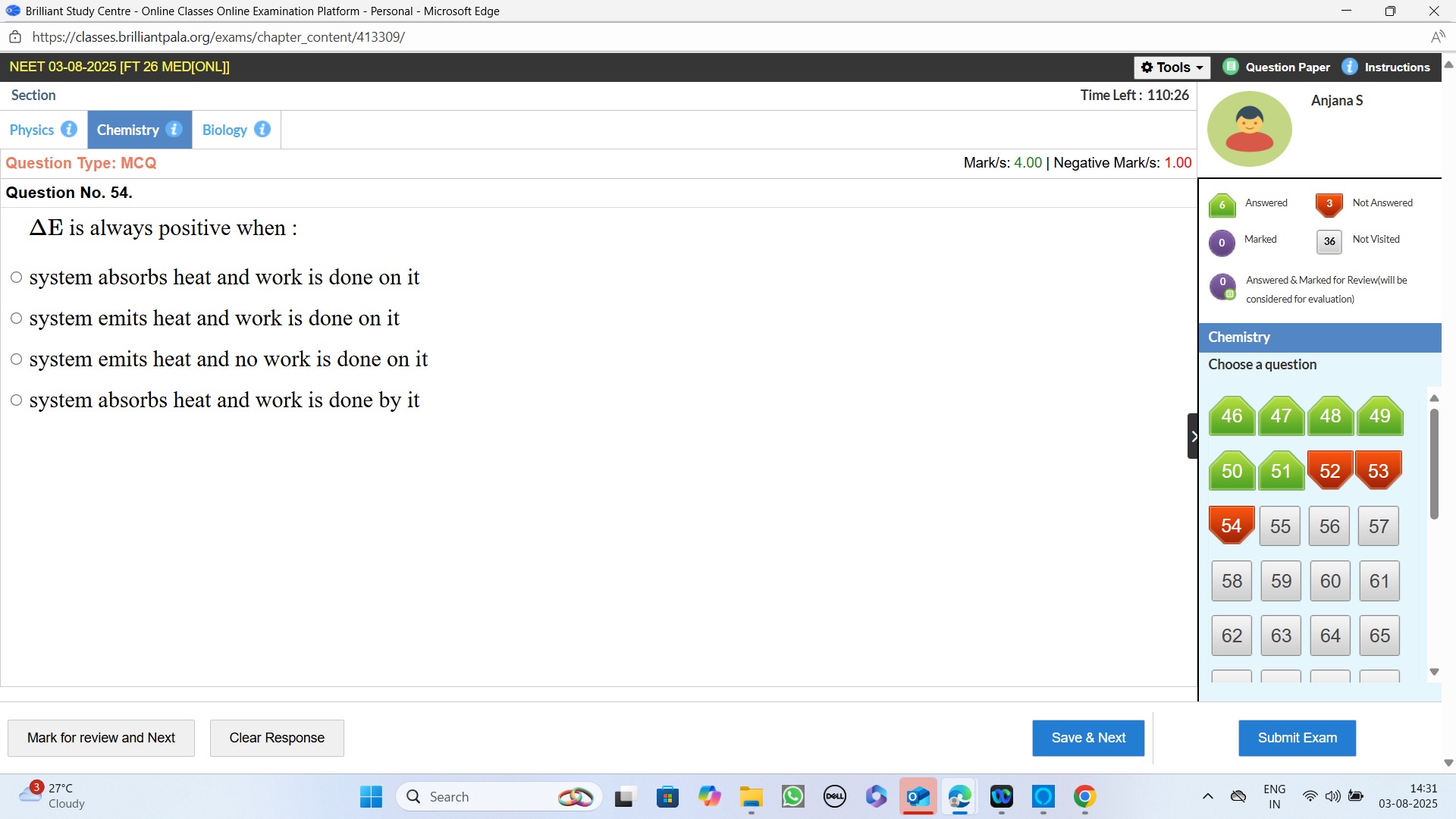Question
Question: $\Delta E$ is always positive when :...
ΔE is always positive when :

system absorbs heat and work is done on it
system emits heat and work is done on it
system emits heat and no work is done on it
system absorbs heat and work is done by it
system absorbs heat and work is done on it
Solution
The question asks for the condition under which the change in internal energy (ΔE) is always positive. This involves applying the First Law of Thermodynamics, which states:
ΔE=Q+W
Where:
- ΔE is the change in internal energy of the system.
- Q is the heat exchanged by the system.
- W is the work done on or by the system.
We use the standard sign conventions:
- Q>0 if heat is absorbed by the system.
- Q<0 if heat is emitted by the system.
- W>0 if work is done on the system.
- W<0 if work is done by the system.
Let's analyze each option:
-
System absorbs heat and work is done on it:
- System absorbs heat: Q>0
- Work is done on it: W>0
- In this case, ΔE=(positive value)+(positive value). The sum of two positive values is always positive.
- Therefore, ΔE is always positive.
-
System emits heat and work is done on it:
- System emits heat: Q<0
- Work is done on it: W>0
- In this case, ΔE=(negative value)+(positive value). The sign of ΔE depends on the magnitudes of Q and W. If ∣W∣>∣Q∣, ΔE will be positive. If ∣W∣<∣Q∣, ΔE will be negative. If ∣W∣=∣Q∣, ΔE will be zero. So, ΔE is not always positive.
-
System emits heat and no work is done on it:
- System emits heat: Q<0
- No work is done: W=0
- In this case, ΔE=Q+0=Q. Since Q<0, ΔE will always be negative.
-
System absorbs heat and work is done by it:
- System absorbs heat: Q>0
- Work is done by it: W<0
- In this case, ΔE=(positive value)+(negative value). The sign of ΔE depends on the magnitudes of Q and W. If ∣Q∣>∣W∣, ΔE will be positive. If ∣Q∣<∣W∣, ΔE will be negative. If ∣Q∣=∣W∣, ΔE will be zero. So, ΔE is not always positive.
Based on the analysis, only when the system absorbs heat and work is done on it, ΔE is always positive.
